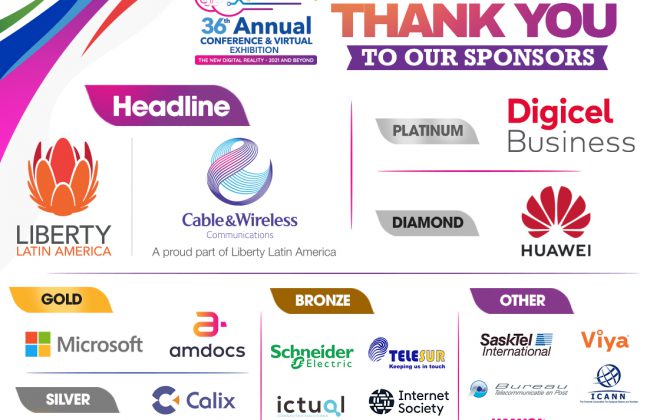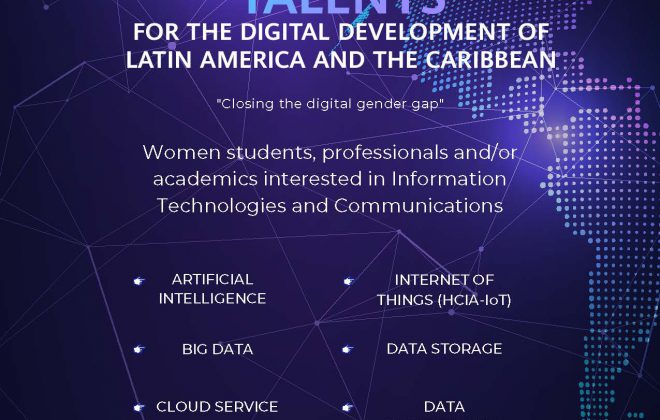CANTO WEEKLY NEWSLETTER – BNAMERICAS
Friday, August 18, 2017
Dominican Republic to reach 860 public internet zones by 2018 – Dominican R.
Bahamas newcomer captures fair share of mobile market – Bahamas
Sovos: Mexico, Brazil the most tax-complex LatAm markets – Regional
BRICS, Mexico weigh down on Cisco’s results – Regional
Brazilian IT multinational ignores LatAm in global drive – Brazil, Regional
Dominican Republic to reach 860 public internet zones by 2018 – Dominican R.
The Dominican Republic will have over 200 public internet spots by the end of the year, and the figure is expected to reach 860 by 2018, according to telecom regulator Indotel.
José Del Castillo Saviñón (pictured), president of Indotel, said that when adding these spots to the 5,200 schools that will also have free internet, the country will have a total of 6,000 public internet zones.
The public broadband network covers 158 municipalities, 222 municipal districts, 156 hospitals, and other public spaces, reported daily Hoy.
While the initiative seeks to give the population internet access without any cost, del Castillo Saviñón said that lowering the price of internet services in the country depends on the tax regime. Therefore, lowering taxes on ICT services must be discussed in the fiscal reform.
“We are talking about a total tax of 30% between the 10% consumer tax, the 18% industrial goods and service (ITBIS) tax, and 2% for the development of telecommunications. This must be revised at some point,” said del Castillo Saviñón.
In addition to the cumbersome tax regime, the senate is assessing a proposal to add a US$0.02 tax on incoming international calls or text messages, to fund the 911 national emergency system.
Bahamas newcomer captures fair share of mobile market – Bahamas
Mobile operator Aliv reached 70,000 subscriptions in the Bahamas since its launch last November. In addition, the newcomer said it has a total of 142 cell sites on the islands.
“Critical steps have been taken to ensure financial viability in the long term and in line with service roll-outs,” media outlet Magnetic Media quoted Aliv’s CEO Damian Blackburn (pictured) as saying. The executive added that the company received US$135mn from shareholders and has invested US$120mn in its network and infrastructure.
Aliv recently began offering services in Bimini and has distribution points in the islands of New Providence, Grand Bahama, Abaco, and Eleuthera. The telco expects to launch in Exuma and Andros later this month.
The entry of Aliv into the Bahamian mobile market has been difficult for former monopoly the Bahamas Telecommunications Company (BTC), who lost 6,000 subscribers to the newcomer in the first quarter of this year.
Both telcos have also struggled to reach agreements regarding the shared use of the BTC’s infrastructure.
Sovos: Mexico, Brazil the most tax-complex LatAm markets – Regional
Brazil and Mexico are the most complex economies in terms of tax and fiscal framework in Latin America.
That’s the opinion of Oscar Caicedo, Latin America Strategy director at tax compliance and reporting software company Sovos.
“Each of the countries in the region has its own particularities. I’d say that in terms of tax complexity, regulation, Mexico and Brazil stand out. You also see significant complexity in Argentina and Chile, but on a different level, and the latter two tend to lead in adoption of these electronic processes.”
Sovos acquired Santiago-based Paperless earlier this month, reportedly the world’s largest e-receipts and e-documents company. Paperless allegedly processed more than two billion transactions across more than 40,000 third-party systems in 2016.
With the acquisition, Sovos expects to have real-time government reporting capability, with electronic receipts, and consumer point-of-sale tax reporting.
Paperless’ solutions support global retailers and manufacturers like HP, InBev, and Cencosud, the second largest retailer in South America. It has offices in Santiago, Lima, Bogotá and São Paulo.
Sovos looks to expand its presence in Brazil and extend Latin American operations further into Chile, Colombia and Peru. Sovos has offices in São Paulo, Brazil, and in Tucuman, Argentina, Caicedo said.
Tax and e-compliance solutions developed in Latin America, a region known as having some of the most challenging regulatory environments, tend to work as a template for other markets.
“Latin America has been a global proving ground for innovative methods by governments to enforce and collect tax from the companies operating within their borders. What starts there, spreads around the world,” John Gledhill, VP of corporate development, said in a Sovos statement.
This is Sovos’ second major acquisition within the past year in Latin America; in 2016, Sovos acquired Invoiceware International to support its more than 500 multi-national clients.
When questioned, Caicedo ruled out new acquisitions in the short term.
BRICS, Mexico weigh down on Cisco’s results – Regional
The BRICS countries – Brazil, Russia, India, China and South Africa – plus Mexico negatively impacted Cisco’s results for their fiscal fourth quarter, ended July 29, CEO Chuck Robbins (pictured) said in an earnings call with analysts and investors.
Overall, Cisco’s FQ4 net income was US$2.4bn, shrinking 14% year-over-year. Net revenue declined 4%, to US$12.1bn.
“Looking at our geographies, Americas was down 2%, EMEA [Europe, Middle East and Africa] was up 3% and APJC [Asia Pacific, Japan and China] grew 2%. Total emerging markets declined 2% with the BRICS plus Mexico also down 2%. In our customer segments, enterprise declined 1% commercial grew 4%, public sector was up 2% and service providers declined 7%,” Robbins said on Thursday.
The executive commented on Mexico in particular, adding that weakness in the country is largely driven by service providers, due to regulatory transitions as well as “geopolitical dynamics”.
According to Robbins, emerging countries as a whole were slightly better than in the previous quarter but he highlighted “tremendous uncertainty and disparity” between performance in those countries.
Worldwide, 31% of CIsco’s total revenue generated in the quarter came from recurring offers, which is up by almost 4% year-over-year.
Revenue from subscriptions increased 18% and now accounts for over 50% of the group’s software revenue. Meanwhile, total product orders were flat.
For detailed Cisco results, please click here.
Brazilian IT multinational ignores LatAm in global drive – Brazil, Regional
Latin America remains off the radar for Brazil’s CI&T, as the multinational developer of IT and digital products continues to expand its overseas business elsewhere, bypassing the region. This is not to say that CI&T does not serve clients in LatAm. It does – but from Brazil.
Beyond Brazil, CI&T has established operations in China, Japan, the UK and US. According to the company’s CEO, Cesar Gon, the group has opted to target more competitive markets.
“Going to another country is going to another culture. It’s not simple, I don’t sell a commodity. It’s not an easy business. I need to understand the ecosystem, the culture, choose the place well, expatriate executives, etc. It is not a quick process to take the value proposition that we want to take,” Gon said, after being asked by BNamericas during a press event at the company’s facilities in Campinas, São Paulo state.
Currently, 40% of the company’s revenues are generated overseas, 35% of the total coming from the US alone. Its clients are mostly multinationals like Itau Bank, Coca-Cola, Motorola, and Johnson & Johnson.
In the US, where it has been present since 2006, CI&T concluded earlier this month its first international acquisition: Comrade, a Silicon Valley-based design firm focused on strategy and customer experience solutions for the financial sector.
To Gon, operating in advanced markets like the US allows the company to gain maturity, competitiveness, and focus.
It’s an economic decision too. “Our business is developed for large companies, and my structure is to serve this global operation; so it does not make much sense to create a local structure, an office, a sales team, etc. just for the sake of it.”
The company reported sales of 400mn reais last year and predicts sales to reach 500mn reais in by the end of this year. CI&T’s objective is to become a billion-real revenue group by 2020, according to Mauro Oliveira, who is the company’s VP for LatAm. “Historically, we have doubled our growth every three years,” he said.
According to CEO Gon, “ideally” CI&T expects to have half of its sales in 2020 coming from global operations and the other half from Brazil.
To the executive, the economic recession in the country had the contrasting effect of slowing IT investments by some firms, and accelerating digitization by other companies to achieve efficiency gains, and therefore reduce costs.
He said that the need for traditional players to catch up with disruptive businesses, especially in the case of banks and fintechs, is another driver of digitization.
In Gon’s opinion, the major revolution is not the digital transformation necessarily, but the new demands and habits of consumers pushing this transformation. “It is the consumer revolution.”
The information presented and opinions expressed herein are those of the author and do not necessarily represent the views of CANTO and/or its members



